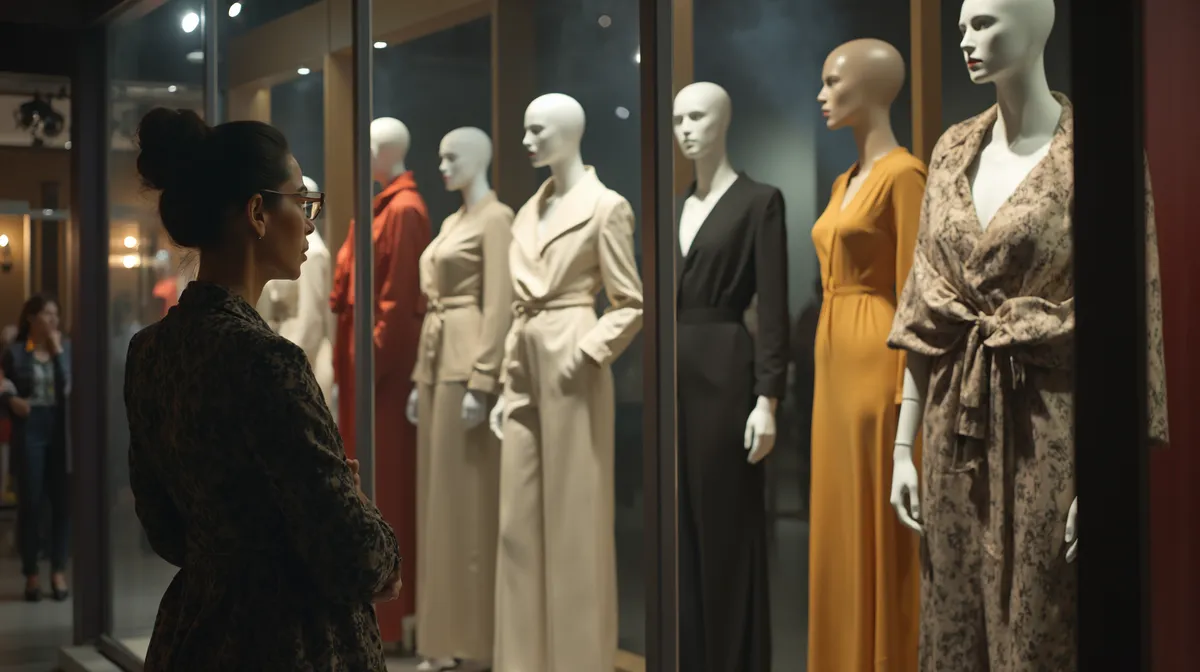

The New Fashion Trends 2024: Innovative Designers Redefining Our Style
mode - None
The Spectacular Evolution of Fashion Trends in 2024
The year 2024 marks a decisive turning point in the fashion universe, characterized by a bold fusion of tradition and modernity. Contemporary creators are reinventing dress codes, infusing a new dimension into personal expression through clothing.
The Milan Fashion Week perfectly illustrates this creative metamorphosis, where minimalist silhouettes coexist with vibrant color explosions. The presented collections reveal a novel approach to fashion design, integrating sophisticated technological elements into traditional fabrics.
"Fashion 2024 transcends conventional boundaries, creating a fascinating dialogue between traditional craftsmanship and technological innovation," affirms Isabella Rossi, renowned creative director.
The Impact of Sustainable Development on Collections
Eco-friendly materials now occupy a central place in the collections of major designers. The use of recycled fabrics, natural dyes, and other sustainable materials is radically transforming the fashion industry. Statistics reveal that 78% of fashion houses now integrate sustainable materials into their creations.
The London scene stands out particularly for its environmental commitment. British designers prioritize ethical manufacturing processes, establishing new standards for the global industry.
The innovative sectors of fashion are demonstrating exceptional growth, particularly in the development of intelligent textiles. These technological advancements enable the creation of adaptive clothing that responds to changing climate conditions.
The Digitalization of Fashion Collections
The digital universe is profoundly transforming the fashion experience. Virtual fashion shows are revolutionizing the presentation of collections, reaching a global audience without precedent. Figures indicate a 300% increase in digital interactions in the fashion sector since 2023.
Technological innovations are redefining the customer experience. Augmented reality now allows for virtual try-on, radically transforming the act of purchasing.
"The future of fashion lies in its ability to merge artisanal expertise with the infinite possibilities of digital technology," emphasizes Marc Durand, fashion innovation expert.
New Stylistic Expressions
The year 2024 is witnessing a major aesthetic revolution in the fashion industry. Creators are exploring uncharted territories, blending global cultural influences with contemporary sensitivity.
Major fashion events reveal a marked trend towards extreme personalization. Modern silhouettes integrate customizable elements, allowing each individual to express their uniqueness.
Current collections celebrate diversity in all its forms. Designers offer adaptable pieces for all body types, marking a significant inclusive turning point in fashion history.
The Influence of Social Movements on Fashion
Social claims are profoundly inspiring contemporary creators. Collections reflect current concerns, addressing themes such as gender equality and cultural diversity.
The professionalization of the sector is undergoing significant evolution. New fashion careers now integrate diverse skills, combining creativity and technical expertise.
Brand social engagement has become a determining criterion for consumers. Studies show that 65% of buyers prioritize brands aligned with their personal values.

Technological Innovation in Contemporary Fashion
The digital revolution is radically transforming designers' creation methods. 3D design tools enable precise visualization of collections before physical production, significantly reducing resource waste.
The technological advancements presented during Fashion Weeks demonstrate the emergence of intelligent textiles. These revolutionary materials adapt to body temperature, regulate humidity, and even change color according to the environment.
"Intelligent textiles represent the future of our industry, combining comfort, functionality, and aesthetics in an unprecedented way," declares Sophie Laurent, textile innovation expert.
Mass Personalization of Collections
Artificial intelligence is revolutionizing clothing personalization. Algorithms analyze individual preferences, creating ultra-targeted stylistic recommendations. Statistics reveal that 85% of consumers seek personalized experiences in their fashion purchases.
Innovative fashion events integrate technologies allowing visitors to interact directly with collections. This interactive approach transforms the traditional customer experience.
The emergence of connected clothing marks a new era in the industry. These innovative creations integrate sensors measuring vital signs, physical activity, revolutionizing the relationship between fashion and well-being.
The Internationalization of Fashion Influences
International collaborations are enriching the creative landscape. Designers are fusing global artisanal traditions with modern techniques, creating unique collections.
Cultural diversity is profoundly inspiring contemporary creations. Traditional motifs, reinterpreted in a modern context, bring an incomparable aesthetic richness to current collections.
"The union of global cultural influences creates a new universal language of fashion," observes Jean-Marc Dubois, fashion anthropologist.
The Emergence of New Fashion Markets
Emerging markets are redefining the codes of global fashion. The distinction between different Fashion Weeks is blurring, creating a global creative dialogue.
The rise of fashion digital platforms is democratizing access to haute couture. Figures indicate a 200% increase in online luxury sales since 2023.
Cultural cross-influences are generating unprecedented creative synergies. Music, contemporary art, and architecture are nourishing designers' collections, transcending traditional boundaries.
The Transformation of Economic Models
The fashion sector is adopting circular economic models. Designers are now prioritizing rental, repair, and recycling, radically transforming consumption habits.
Purchasing behaviors are evolving significantly. Consumers are prioritizing quality, durability, and ethics, profoundly modifying brand strategies.
The collaborative economy is significantly influencing the fashion industry. Exchange and resale platforms are transforming consumers' relationships with their clothing. Studies show a 150% increase in the second-hand market since 2022.